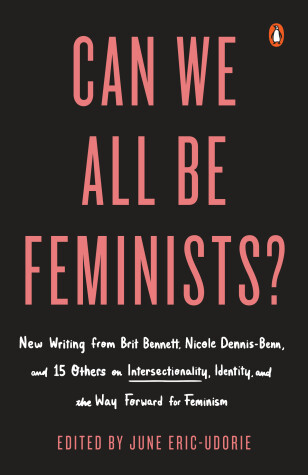Reviewed by Ace on
An #ownvoices collection of essays written by up and coming, influential feminists, many of whom if not all belong to one minority or another. With a range of authors from Muslim, Lesbians, Transgender African Americans, African Americans and Bisexual Catholics the wide diversity that is present in this books is outstanding. Each essay is unique from the perspective of the author looking at things such as race and transgender, race and queerness, immigration and women whether they are cishet or queer to fat feminism and abortion and the referendum in Ireland.
I like to think I'm pretty 'woke' but there were things in this book that made me sit back and go 'huh I hadn't thought of that' such as the issue with immigration. While that particular essay was focused on England and their immigration policy and touched briefly on Canada's but it's startling to realise just how much of a feminist issue it is but at the same time something that mainstream or 'white feminism' hasn't picked up.
At least one essay also in touching on race and feminism touched on an important argument for women's rights - equal pay. It raises the point that it is very hard to fight for equal pay between sexes when WOC aren't paid as high or disable women - especially disabled WOC - as their white counterparts. Why fix the sexes when we have the problem within our sex as well?
I'm the first to admit I have white girl privilege and rich white girl privilege at that. While my parents aren't rich they are well off enough that my two brothers and I could be sent through private schools for our entire schooling and never had to go without. It also wasn't until probably 2015 or 2016 at the age of 25/26 that I really started to get into feminism. Sure I've always wanted equality between sexes but I didn't understand what it truly meant let alone intersectional feminism. This book therefore does a wonderful job of opening up and making you aware of just of just how lacking mainstream feminism can be. Third Wave Feminism is making progress but as a whole we have a long way to come until.
Reading updates
- Started reading
- 5 January, 2019: Finished reading
- 5 January, 2019: Reviewed
